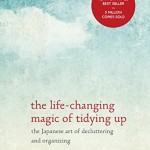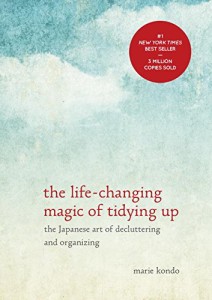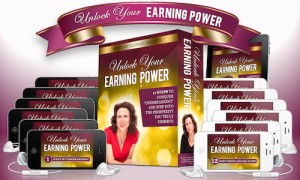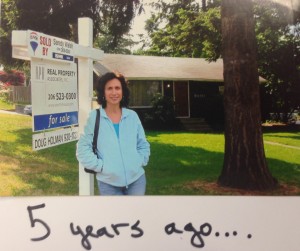Greetings!
Now that you’ve survived Black Friday and likely taken advantage of Cyber Monday, it would be great to sit down with a cup of tea and think through what you have left to buy. My article below should help you remain sane with your gift buying and avoid the post-holiday spending hangover. Read this and enjoy December a bit more. (And remember– it’s not up to you to find the exactly perfect gift that will fulfill the deepest heart’s desire of your recipient. A gift is just an expression of your fondness for the recipient. Really.) I have more deep thoughts/ ideas on my Pinterest board- or find me on Facebook.
How to Avoid the Post-Holiday Hangover
Don’t worry – I am not here to ration what you eat and drink over the holidays. I am talking about a spending hangover. You know what I mean – come January, when all the gifts are opened, the parties are over…and the Visa, MasterCard, Best Buy, and Nordstrom bills begin to arrive.
Sadly, it takes the average American who uses credit cards to finance Christmas six to seven months to pay off the holidays. Who wants to be basking in the summer sunshine while still paying for the gifts you gave your kids, family and friends the year before?
If you want to avoid that January spending hangover, consider this: at the root of post-holiday debt is lack of planning.
A plan lets you know when you’ve completed your shopping. It tells you when to stop — if you don’t have a finish line, you are going to keep shopping as long as the stores are open. (Or until the “guaranteed delivery dates” from online shopping move to December 26.) Knowing what you have already ordered and have left to buy — and how much more you want to spend– will save you a ton of money. You will finish your shopping earlier and you will have fewer impulse buys.
I know that creating plans like this aren’t as fun for everyone else as they are for me. But, I promise you this one is pretty simple to do, and well worth the 15 minutes it will take you. (15 minutes today instead of seven months of regret…I’ll take it.)
TIP: Create your plan in whatever form will be easiest for you to bring with you when you go shopping or sit at the computer. If you are a pen and paper person, use that. Keep everything on your phone? Make it digital. The best plan does you no good if you don’t bring it with you.
Creating Your Plan (Even if you are almost done shopping!)
- People —Think of everyone you are planning on giving a gift to, and list them in a column. Don’t put down gift ideas yet. Only brainstorm people, and make sure you get everyone. One of the biggest pitfalls is gifting a lot more people than we originally intended. Consider creating three sections: family, friends, and service providers (babysitter, hair stylist, etc.)
- Gifts — Now that you know who is on your list, write down gift ideas if you have not bought them something yet. And also write down the gifts you’ve already bought/ ordered.
- Money— Last, enter amounts of money in the final column. Do the best you can – a guess is better than nothing. If you have already purchased the gift, put down what you think you spent. Let me be clear- if the money has already left your account for ordered gifts, or gifts purchased long ago, list these amounts. Then list the amounts of money for gifts you have not purchased yet. Circle these unpurchased gift numbers.
- Totaling Up and Adjusting — Now add your total gifts and think about this total. If it includes gifts already purchased (back in August?) you may be surprised at the actual total. And then total up the remaining gifts to be bought- the numbers you circled. How do you feel about the amount? Does this seem reasonable? Really think about it. Can you afford this? Is it worth going into credit card debt to be able to give a gift to everyone you know? What are your other options? If your total plan seems too high, go back and make some adjustments and then re-total. Keep doing this until you feel better about the total.
- Tracking — As you spend money on the remaining gifts, jot down the amounts on your plan. Add up what you’ve spent on a weekly basis, or more if need be. Where are you? Remember, part of creating a plan is seeing what will happen before it happens! If you don’t like what you see, take the time to work on your list.
The good news is, trying to stick to a plan (regardless of how successful you are with it) will cut down on impulse buying, which is a major problem during the holidays. Without a plan, people buy more things and spend more money on each item they purchase. The temptations can be overwhelming when you are out shopping.
If you have gone through your plan and don’t know how to make this work, consider getting more creative. What if you changed your holiday gift-giving ritual? I used to give gifts to friends, but now we all go out and enjoy a play together. This came out of doing my own first holiday spending plan. I felt a little guilty when I approached them with my idea, but discovered they were all relieved.
Wrapping It Up
We all know that the holidays can feel very emotional. If you would like more tips to avoid those “ghosts of holidays past” that could influence your spending, expectations, and behaviors in the present – and you’d like to really dive into envisioning the perfect holiday – I invite you to download Karen McCall’s free eBook, The Holiday Planner – your guide to creating a holiday season that is soulful, balanced and financially sane.
You owe it to yourself to head off that infamous spending hangover. And don’t forget the best benefit of all: a spending plan cuts down on stress! You can enjoy the holidays like they were meant to be enjoyed.
Happy holidays!
Want more help transforming your relationship to money? Check out all the eBooks, audios, and more robust products Mikelann has created. Are you ready to break free of the “money fog” and step into earning what you are worth? Are you are ready to get in touch with your emotions so you never feel out of control around money again? Are you ready to love your financial life? Let Mikelann help you get there. Free items are at the top of the page.
















